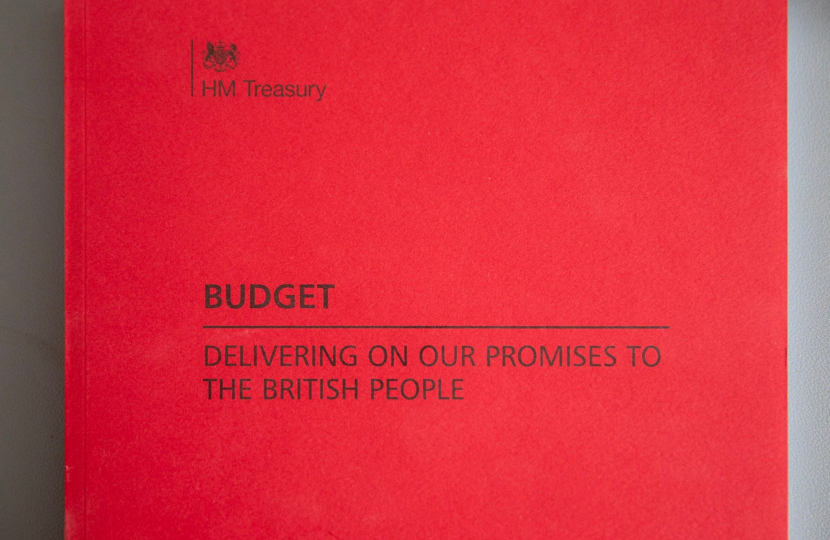
There can be no question that the economic environment in which the Chancellor of the Exchequer Jeremy Hunt is having to make his budget decisions is immensely challenging. Inflation is still at 10.1%, although down from the 11.1% high of last year. Energy prices may be falling, but they are still volatile. There are lots of other pressures too that paint a difficult path ahead. Government gross debt at the end of Q2 2022 is now equivalent to 101.9% of GDP and lockdown-related supply chain challenges continue across the globe with the outcome of the war in Ukraine still not certain.
There is no doubt that tackling inflation will be central in the budget, plus many commentators have stated that the days of cheap borrowing are well and truly over.
Our tax levels are at their highest in over 70 years and public sector expenditure is well over 40% of GDP. The second age of globalisation which began after the fall of the Berlin Wall is no more. The Covid crisis has accelerated its demise. Global supply chains will be very different as they rebuild over the next 5 to 10 years. The peace dividend which gave western governments the opportunity to disinvest in defence spending has come to an abrupt halt. NATO defence force capability is worryingly vulnerable and in need of a hefty injection of new spending in order to rebuild.
It is not all doom and gloom, however, and in any case, it is important for the Chancellor and the Government more widely to demonstrate the way forward. There is a growing sense recent price surges are in retreat, with stocks and bond markets recently rallying. Investors are concluding that interest rates may have peaked and this is welcome news. The economy can recover, but the balancing act that the Chancellor has to manage in the battle to deal with inflation, is not to strangle the recovery and make it weaker. Over taxation can damage our economic recovery as can uncontrolled public spending.
Our tax levels are at their highest in over 70 years and public sector expenditure is well over 40% of GDP.
Perhaps even more damaging than the short term, but significant economic consequences of the reaction to the Kwasi Kwarteng September 2022 ‘mini’ budget, is the risk that the major tactical errors of that time lead to a conclusion that the strategy of a lower tax rate, higher productivity and thus better levels of growth economy approach is in itself misguided and thus discredited for a political generation. That would be a hugely damaging legacy and one which, even within the limited room for manoeuvre that the Chancellor has, he can still avoid.
One way to avoid this, which I believe is especially important, is freezing the upcoming increase in Corporation Tax from 19% to 25% which comes into force in April. This increase will take 6% from bottom lines at a time when businesses are at their weakest, battered by Covid, crippled with Covid loan debts, high energy prices, inflation and supply chain issues.
"From 2010 to 2017, UK corporation tax rate fell from 28% to 19%, yet tax receipts doubled from £31.7bn to £62.6bn - 2.4% to 2.9% of GDP. This reflects higher investment which is the dynamic impact of tax changes that Treasury mandarins' economic modelling often fails to capture."
There is another argument why this increase should not come into force and that is around the issue of tax take. The Treasury estimates that this 6% tax increase will bring in an extra £18 billion into public coffers. I beg to differ and I have Treasury figures to prove it. From 2010 to 2017, UK corporation tax rate fell from 28% to 19%, yet tax receipts doubled from £31.7bn to £62.6bn - 2.4% to 2.9% of GDP. This reflects higher investment which is the dynamic impact of tax changes that Treasury mandarins' economic modelling often fails to capture. Higher taxation puts a squeeze on investment as we have seen recently with Astra Zeneca’s decision not to invest here and go to Ireland instead. They blamed the uncompetitive tax environment for their decision.
There are other measures that the Chancellor might want to consider that I and many others believe would assist our economic recovery, such as: Revisiting decisions over IR35 and self-employment, longer time frames for CBILs repayments, not cutting back on support for energy bills for business too quickly, pension reform to extend Tax Free, Lifetime and Annual Allowances (which would actually is assist in getting some highly skilled people, doctors in particular but others too, to be able to do more work) and a review of VAT registration levels.
Looking further ahead: Family or household taxation options, income tax thresholds, awkward and disincentivising steps up in people’s taxation payments, merging so-called National Insurance and income tax and indeed radically simplifying the tax system altogether have much to commend them.
This Chancellor has proved himself very open to having discussions and receiving submissions about the Budget - and indeed the approach to the economy overall - and I shall be meeting with him ahead of the Budget to make the case for the suggestions above.
This article was originally published in the www.business-times.co.uk

